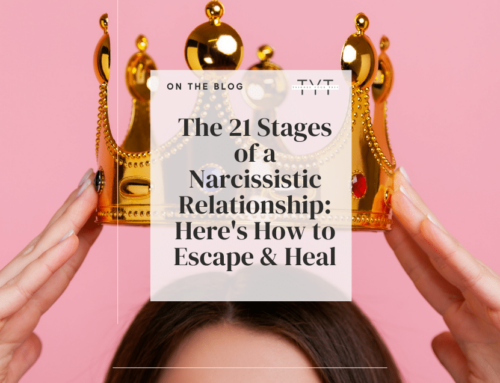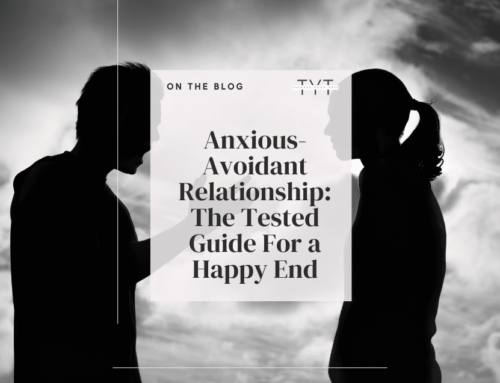Are you stuck in a never-ending cycle regarding how close to others you’re craving to be? Always sensing that the same emotions of abandonment continue to come back and haunt you no matter what you do? If so, then you may be experiencing a lack of emotional permanence.
Emotional permanence refers to understanding and recognizing that people, things, and emotions continue to exist, even when they are not physically present or visible. In terms of emotions, it means that even if we can’t see or directly experience someone’s feelings, we can still understand that those might exist and have an impact. Emotional permanence is an essential aspect of emotional development and closely relates to empathy and social awareness.
Fortunately, many strategies are available to help those suffering from emotional permanence find relief and strengthen relationships. In this article, we’ll discuss the concept of emotional permanence and provide five top tips for coping with it.
What is Emotional Permanence?
Emotional permanence refers to maintaining a sense of emotional connectedness and security even when one is not in direct physical contact with another. It is the understanding that even though we may not be with someone or cannot directly experience someone’s feelings for us, they still exist, and our emotional connection remains intact.
Emotional permanence is essential in close relationships, such as with parents, partners, or close friends. It is the foundation of trust and the feeling that someone will always be there for us, no matter what. When we have emotional permanence, we can feel safe and secure in our relationships, even if we are physically apart. We can trust that our loved ones are still there for us, even if we can’t see or touch them.
Emotional permanence is also closely linked to emotional regulation, which refers to managing one’s emotions healthily and adaptively. When we have emotional permanence, we can better regulate our feelings because we have a strong sense of support and connectedness, even when facing challenging situations.
Overall, emotional permanence is an essential component of healthy and secure relationships, and it is something that can be cultivated and nurtured through conscious effort and attention.
What Does It Mean To Have No Emotional Permanence?
A lack of emotional permanence can signify several things, from traumatic childhood abandonment experiences to an insecure attachment style. Generally, it refers to a lack of ability to maintain a sense of emotional connection and security when a person is not in direct physical contact with someone they have a close relationship.
When someone lacks emotional permanence, they may struggle to regulate their emotions, particularly when they feel disconnected or alone. They may feel anxious, uncertain, or insecure in their relationships, which can lead to a lack of trust and difficulties with intimacy. People who experience a lack of emotional permanence may struggle with maintaining long-term relationships, as they may need constant validation and attention from their partners or friends. They may also be prone to emotional outbursts or difficulty controlling their emotional reactions in stressful situations.
This lack of emotional safety and security can negatively affect a person’s mental and emotional well-being and ability to form and maintain healthy relationships. It is important to note that emotional permanence is a skill that can be developed and improved through therapy, mindfulness practices, and intentional efforts to build strong and secure relationships.
Related: The 43 Best Spiritual Healing Quotes for Instant Self Therapy
Emotional Permanence Deficit in Relationships
Emotional permanence deficit in relationships refers to a situation where one (or both) of the individuals lack emotional permanence and, thus, struggle to maintain a sense of emotional connection and security with their partner or loved one. This can occur when the individual has difficulty regulating their emotions, mainly when they are not in physical contact with their partner or feel ignored and disconnected.
As a result, they may feel anxious, insecure, or uncertain about their relationship’s strength, leading to a lack of trust and difficulties with intimacy. Generally, people with emotional permanence deficits may find it challenging to build and maintain long-term relationships, as they may struggle to feel emotionally connected when they are not physically together.
They may experience intense emotions, such as jealousy, fear of abandonment, or anger, when they perceive a lack of attention or affection from their partner. This can result in conflicts, misunderstandings, and difficulties with communication within the relationship.
Emotional Permanence Deficit in Relationships can hurt the individual’s emotional and mental well-being, leading to feelings of depression, anxiety, and low self-esteem. It can also strain the relationship and cause the other partner to feel emotionally drained or overwhelmed.
It is important to note that an emotional permanence deficit in relationships is not a personality flaw or a sign of weakness. As mentioned above, it can signify a trauma bond or an insecure attachment style. It is a challenge that the individual has to recognize, accept and address with professional help, such as therapy or counseling.
With the proper support and guidance, individuals can learn to develop emotional permanence and build healthy, secure, and fulfilling relationships. This may involve learning new communication skills, developing emotional regulation techniques like journaling or mindfulness breathing, and increasing their capacity for vulnerability and intimacy.
Related: Reactive Abuse & Narcissism: What Is It & How To Deal With It
Object Permanence and Borderline Personality Disorder
Object permanence is a psychological concept that refers to an individual’s ability to recognize the existence of objects even when they are not visible. This concept can be applied to how one feels as well.
People who can’t recognize and hold onto how they feel often struggle with emotional permanence. They may also lack object constancy; as a result, they may feel like their relationships are unstable and not intact, and they may harbor a chronic fear of abandonment.
Borderline personality disorder (BPD) is a severe mental illness affecting how a person feels, thinks, perceives, and interacts. It is characterized by difficulties balancing sentiments, unstable interpersonal relationships, a distorted self-image, and impulsive behavior.
People with BPD often have difficulty recognizing, coping with, and controlling intense emotions such as anger, fear, sadness, and anxiety. Those with the disorder may then experience problems with emotional permanence due to the fierce sentiments they experience.
Related: 12 Traits of a Narcissist To Spot Immediately & Avoid Attachment
3 Telltale Signs That You Lack Emotional Permanence
You Need Constant Reassurance So You Won’t Feel Unloved.
One tell-tale sign of emotional impermanence is the need for constant reassurance and validation. This can manifest in many ways, such as an individual seeking verbal confirmation that their partner loves and accepts them. They may also look for tangible signs of affection or recognition, such as gifts or compliments.
When you Experience Negative Emotions, Your Emotional Regulation Is In Danger.
Experiencing negative sentiments can create problems for emotional regulation. At any moment in time, if we are overwhelmed, it can be challenging to control and manage how we feel healthily and may create a sense of emotional turmoil.
This can lead to destructive behaviors such as lashing out at a loved one when angry or anxious. It can also play a role in developing self-destructive habits. It is essential to recognize the signs that our sentiments may be getting out of control and seek help if necessary.
Related: The 7 Stages of Trauma Bonding: Here’s Why You Can’t Leave
You Struggle With Acknowledging Two Opposite Emotions.
Struggling with two emotions that are opposing can be a sign of a lack of emotional permanence. It is difficult for someone to acknowledge and accept both positive and negative feelings simultaneously. This type of cognitive dissonance can lead to confusion, doubt, and difficulty in regulation.
Most people who struggle with two opposing sentiments may have trouble trusting themselves or others. Additionally, a person that lacks this clarity may develop a path of behavioral dysregulation when it comes to forming relationships, managing existing dynamics with a loved one (partner, parents, or otherwise), or making other important life choices. This may further leave them angry, in doubt, and feeling like their relationships lack love and trust.
How do you Cope with Emotional Impermanence To Establish Emotional Stability?
Those who lack emotional permanence often find themselves unable to manage their feelings or respond appropriately to the world around them. A sense of emotional impermanence is damaging, and coping with it is essential for a stable emotional state.
It’s essential to recognize that even though -at any point- you may feel overwhelmed by opposing sentiments, they are not permanent and can be worked through. To help with this, there are several things one can reflect on.
Accept that you lack emotional permanence.
The first step to recovery is accepting your lack of emotional permanence. Understanding how you feel shapes your behavior and reactions and makes it possible to find ways to break out of destructive patterns and address your issues more effectively.
Talk about how you feel, especially in romantic relationships.
Open communication and discussing how you feel in any relationship are essential for emotional balance. This can help create a sense of trust between partners and provide a safe space for both parties to express themselves without fear of judgment or retaliation. Additionally, it helps partners understand what their significant other truly needs from them to maintain a constant state of feeling loved.
Understand your partner’s feelings.
Comprehending how your partner feels is critical in establishing balance in a relationship. It’s essential to recognize that someone else’s experience will differ from yours and may require tremendous effort.
Through open dialogue, communication, and fact-checking, a person can gain insight into the emotional state of their partner. This will help them better understand what their partner truly requires. With patience and dedication toward making positive changes in the relationship, one can make sure their partner feels happy, secure, and loved.
Acknowledge that unstable relationships aren’t good for your mental health.
Unstable relationships can damage your sense of more significant mental health and well-being. When we feel unsupported, unloved, or taken for granted, it can lead to feelings of depression and anxiety.
Additionally, unstable relationships can also cause us to question our worth. This further exacerbates our negative sentiments. Creating an absence of unhealthy relationships in our lives can help us reduce insecurity and start living more fulfilling lives.
Attend support group therapy.
Attending support groups can be essential to managing emotional permanence and establishing emotional stability. Support groups simultaneously provide a safe, accepting environment for individuals to share their experiences while learning from struggles in others’ lives.
This can help people feel less alone and more connected to others, helping reduce their feelings of abandonment and anxiety and create better relationships with loved ones.
Track your feelings in a mood journal.
Tracking how you feel is an integral part of coping with emotional permanence. Keeping a mood journal can help you to recognize patterns in your behavior and sentiments, which can be the first step to understanding why you feel specific ways and how to manage them.
It also helps put things into perspective by providing insight into the patterns of your emotions and thought processes, allowing a more excellent perception of why you feel the way you do. This knowledge can bring clarity to our innermost thoughts, enabling us to gain perspective on our experiences and ultimately leading to more effective decision-making.
Final thoughts
Emotional impermanence can be a challenging and overwhelming experience for anyone who struggles with it. However, by understanding the root causes and taking proactive steps to manage how we feel, for example, by attending support group therapy or tracking your feelings in a mood journal, you can begin to make progress towards establishing emotional stability.
It’s important to remember that negative sentiments may come and go, but they don’t have permanence over our lives. With patience and dedication toward making positive changes, it is possible for anyone suffering from emotional impermanence to find peace within themselves.
More on emotional well-being:





